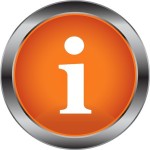 Most aspiring authors believe their ideas are unique and readers absolutely need to read their books. Like these writers, you may feel convinced your book idea is new, fresh, timely, different, and essential.
Most aspiring authors believe their ideas are unique and readers absolutely need to read their books. Like these writers, you may feel convinced your book idea is new, fresh, timely, different, and essential.
It’s great to feel passionate, enthusiastic and confident when the proverbial light bulb goes off, but those feelings—and your conviction—simply aren’t enough reason to write and publish a book. You must have facts that unequivocally prove your idea is unique and necessary in the marketplace. These facts must convince a literary agent, first, and an acquisitions editor, second, that your book is marketable. They also must convince you as an indie publisher that you have crafted a viable product—on with a chance of succeeding, which means selling.
Create a Marketable Book
If you want to write a commercially marketable book that stands out in its category—the shelf where you find it in a physical bookstore or where it is catalogued in a virtual bookstore, you must develop an idea that is unique and necessary. That means you not only need to provide a book with a high degree of value to readers in your target market, but you also need to write a nonfiction book that offers new information or a different angle on old information. It should “fill a hole” in that category, which means you have to write a book no one else has written yet and that is needed in that particular subject area.
How to Craft a Unique and Necessary Book Idea
One of the ways this is accomplished is by determining if the book is unique and necessary compared to competing books—other books like it that have previously been published. To accomplish this, you must conduct what is called a “competitive analysis” of books in the same category as your book. Then you evaluate how to make your book better than the competition.
To complete the analysis, first, determine your book’s category. Is it a business, body-mind-spirit, travel, reference, history, or craft book, for example? Second, use the internet, or go to your favorite local bookstore, and examine books you feel are direct competition to yours. These are books someone might buy instead of yours because the content is so similar.
When you have 5-10 bestselling books (preferably traditionally published) released in the last three years, study:
- the table of contents
- the foreword and who wrote it
- the front cover
- the back cover
- the first chapter or two
- the index
- the author’s biography
- number of pages
- whether the book is available in paper back, ebook or both
- category choice
- publisher
- price
- year published
Next, take a look at your own idea and compare it to the top five competitive titles you have analyzed. Ask yourself:
- How can I create a better book?
- How can I create a book that better serves readers?
- How have these authors underserved readers in such a way that opens up an opportunity for me?
- How do these books fall short of readers’ expectations or needs?
- How is my book the same as these (and how must I change my book to make it different)?
In other words, use these books to spark ideas that will help you hone your idea into the best possible book in the category or topic area.
Brief statements that describe the pros and cons of the competition should be included in a book proposal, should you want to pursue traditional publishing. For a business plan for a self-published book, you can include all the detail you like. (For more information on how to write a business plan for your book, read The Author Training Manual or The Nonfiction Book Proposal Demystified.)
How to Craft a Proposal for a Book that Sells
A 6-week course on how to write a
business plan for a successful book
Learn how to write a book proposal that convinces agents and acquisitions editors your book is a viable product and that you make a good business partner so they are eager to work with you and to help bring your book to market. Also, discover how to use the “proposal process” as a creative one that helps you produce a book that will sell to a publisher and to readers upon release. Find out how developing a proposal can help you craft a successful career as an author as well as a success book no matter what type of book you write or how you decide to publish.
Receive more information and register by clicking on the button below.
Space is limited.
Photo courtesy of Apolonia |freedigitalphotos.net


Leave a Reply